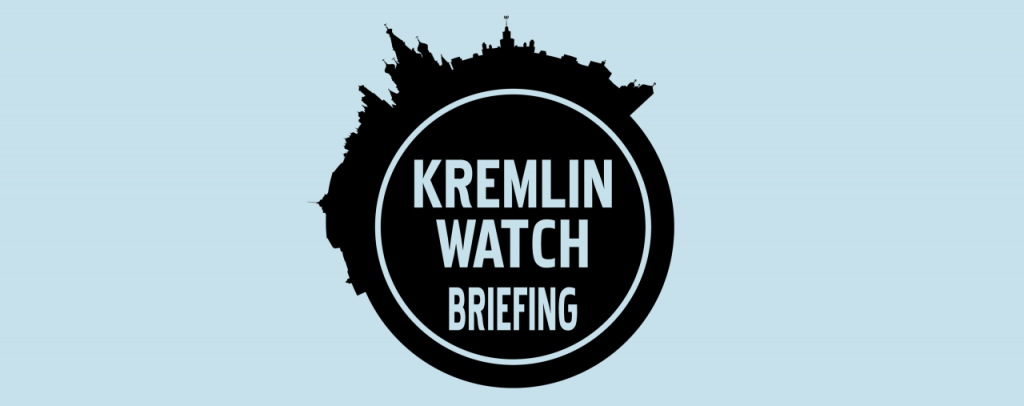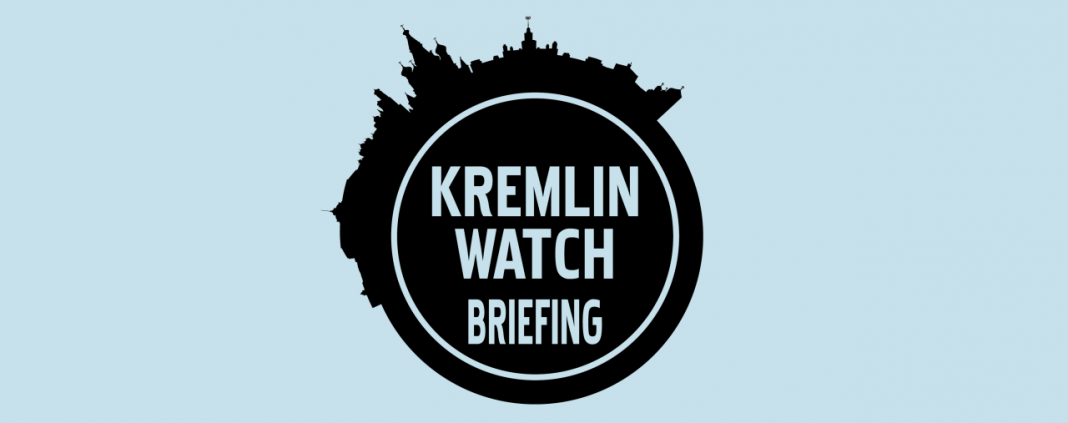
Topics of the Week
HRVP Josep Borell visits Russia while the Kremlin keeps cracking down on protests.
US President Joe Biden spoke with Vladimir Putin for the first time since Biden took office.
Sanctions and protests: A thorn in the Kremlin’s side
Good Old Soviet Joke
Brezhnev asked to meet with a group of astronauts.
– Comrades! The Americans have landed on the moon. We have decided that you will fly to the Sun.
– But we will burn, Leonid Ilyich!
– No worries comrades, the party already thought of everything. You will fly at night!
Policy & Research News
HRPV Josep Borell visits Russia
European Union (EU) High Representative for Foreign Affairs and Security Policy Josep Borrell visits Russia this week as bilateral relations have deteriorated following the arrest of Russian opposition leader Alexei Navalny last month. In a meeting on January 25, EU foreign ministers described Navalny’s detention as “completely unacceptable” but agreed to await a Russian court decision before imposing new sanctions. EU member states have consolidated behind rhetorical condemnations. However, there appears to be internal disagreement on what concrete action to take. Whereas Central and Eastern European countries favour a tough EU response, influential states such as Germany and France are more hesitant and will ultimately determine the EU’s response. Regardless, a binding decision on sanctions cannot be taken until late March – when EU leaders are scheduled to meet.
Meanwhile, Borrell’s arrival in Moscow on February 4, is set against the backdrop of civil unrest. In response to protesters demanding Navalny’s release, Russian authorities made over 5 000 arrests and imposed a lockdown in central Moscow over the weekend. EU member state representatives have previously urged Borrell to postpone his visit – the Baltic Foreign Ministers cited alleged Russian violations of “liberty and security” in a joint statement. Still, Germany and France support Borrell’s trip as an opportunity to convey the EU position directly to Russian officials. While Borrell condemned “widespread detentions and disproportionate use of force against protesters and journalists” and underscored that “Russia needs to comply with its international commitments” on January 31, he continues to push ahead with the visit.
China likely to be excluded from Czech nuclear power tender on national security grounds, but Russia is still being considered
Czech political parties reached a consensus last week to exclude Chinese, but not Russian, companies from consideration in the tender process to build a new nuclear reactor unit at the Dukovany power plant.
Sources in the Czech security community had expressed concern that the tender process would consider bids from countries that openly oppose the North Atlantic Alliance, conduct industrial and other espionage, and openly produce anti-Western propaganda. Both the Chinese (China General Nuclear Power) and the Russian (Rosatom) applicants are under the direct political control of their respective governments.
While all the deliberating parties had managed to agree that this made China an “unimaginable potential supplier”, according to Czech Minister of Industry and Trade Karel Havlicek, politicians have been divided over whether to similarly exclude Russia. Opposition parties indicated that they are not happy that Russia remains a possibility, and said they would exclude Russian participation if they win the Czech elections in October. The inclusion of Russia in the tendering process is seen as a key priority of Czech President Milos Zeman.
The Dukovany facility was the first nuclear power plant built on Czech territory, and the replacement of its ageing soviet-era reactors is a key part of the EU effort to achieve the long term goal of carbon neutrality, and to end the country’s reliance on coal.
US Developments
President Joe Biden Spoke with President Vladimir Putin for the First Time Since Biden Took Office
The call, which happened on January 26, 2021, came less than a week after President Biden took his oath of office. They discussed the New START treaty, agreeing to complete the extension of the arms control treaty by February 05, 2021. During the call, Biden notably raised a number of concerns with Putin, namely: the SolarWinds Hack, reports of Russia placing bounties on US soldiers in Afghanistan, interference in the 2020 election and the poisoning of Alexei Navalny. Biden also reaffirmed the US’ support for Ukraine’s sovereignty. President Biden’s Press Secretary, Jen Psaki, stated that Biden had never held back [his concerns] as it relates to President Putin or his concerns about the actions of the Russian government and he certainly conveyed that clearly in the call,”
West Virginia Woman Sentenced to 11 Years in Federal Prison for Planning to Offer Top-Secret Information to the Russian Government
Elizabeth Jo Shirley, who served in the Air Force, previously pleaded guilty in July 2020 as part of a plea agreement to one count of willful retention of national defence information and one count of international parental kidnapping. According to the Department of Justice, Shirley admitted to “unlawfully retaining a National Security Agency document containing information classified at the Top Secret/Secret Compartmented Information level”, with prosecutors stating that Shirley took her 6-year-old daughter to Mexico, intending to contact the Government of Russia to request resettlement in the country. Shirley was arrested in August 2019 in Mexico City; her daughter was returned to the girl’s father.
Kremlin’s Current Narrative
Sanctions and Protests: A Thorn in the Kremlin’s Side
Russian opposition leader Alexei Navalny’s Anti-Corruption Foundation (FKB) has sent a letter addressed to President Biden, calling for targeted sanctions against dozens of Russian business and political elites. While the Biden administration is yet to provide an official response, Kremlin officials have been quick to make their thoughts known.
First Deputy Chairman of the Russian Federation Council Committee on Foreign Affairs, Vladimir Dzhabarov, said that the lobbying by FKB, “smacks of treason.” He called for a strong reaction from law enforcement agencies and was joined by Deputy Chairman of the State Duma, Igor Lebedev, who described the call to impose sanctions as a humiliation to the country. These statements aside, some used the letter to provide justification for the FKB having been branded a ‘foreign agent’ by Russia since 2019.
While speaking to reporters Kremlin spokesman Dmitry Peskov said that as for the foundation, letters and appeals, they simply serve to demonstrate the FKB status as a foreign agent. And when asked about his view on the West’s sanctions more broadly, the state-run TASS news agency quoted him as saying “it is a profoundly wrong way of engaging relations between states.” Commenting on state relations was a clear way of constructing an already heated narrative between the West and Russia regarding protests.
As police took unprecedented measures to control the centres of Russia’s largest cities, Russian Interior Ministry spokeswoman, Irina Volk, called upon all citizens to refrain from taking part in what she described as unauthorized rallies. Despite the warning, in the second week of protests against Navalny’s imprisonment, more than 4,000 people were detained, prompting a flurry of headlines from state-run Russian media.
While Sputnik led with the stories of a police officer being injured in the protests, RT focused on the comments of the Russian security chief, Nikolay Patrushev, who suggested the West was using Navalny to destabilize Russia. State-backed news agency Tass referred to Foreign Ministry Spokeswoman, Maria Zakharova, who stated, “our Western partners, who are so worried about democracy in Russia, [should] concentrate on the settlement of their own problems.” With the US and EU now facing difficult decisions concerning sanctions in response to the Navalny’s detainment, the middle-to-near future of Russia-West relations could be set much sooner than anticipated.
Kremlin Watch is a strategic program of the European Values Center for Security Policy, which aims to expose and confront instruments of Russian influence and disinformation operations focused against the liberal-democratic system.





